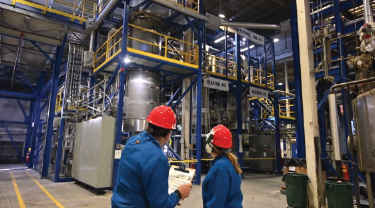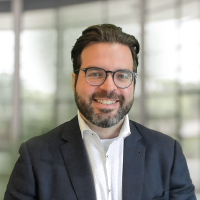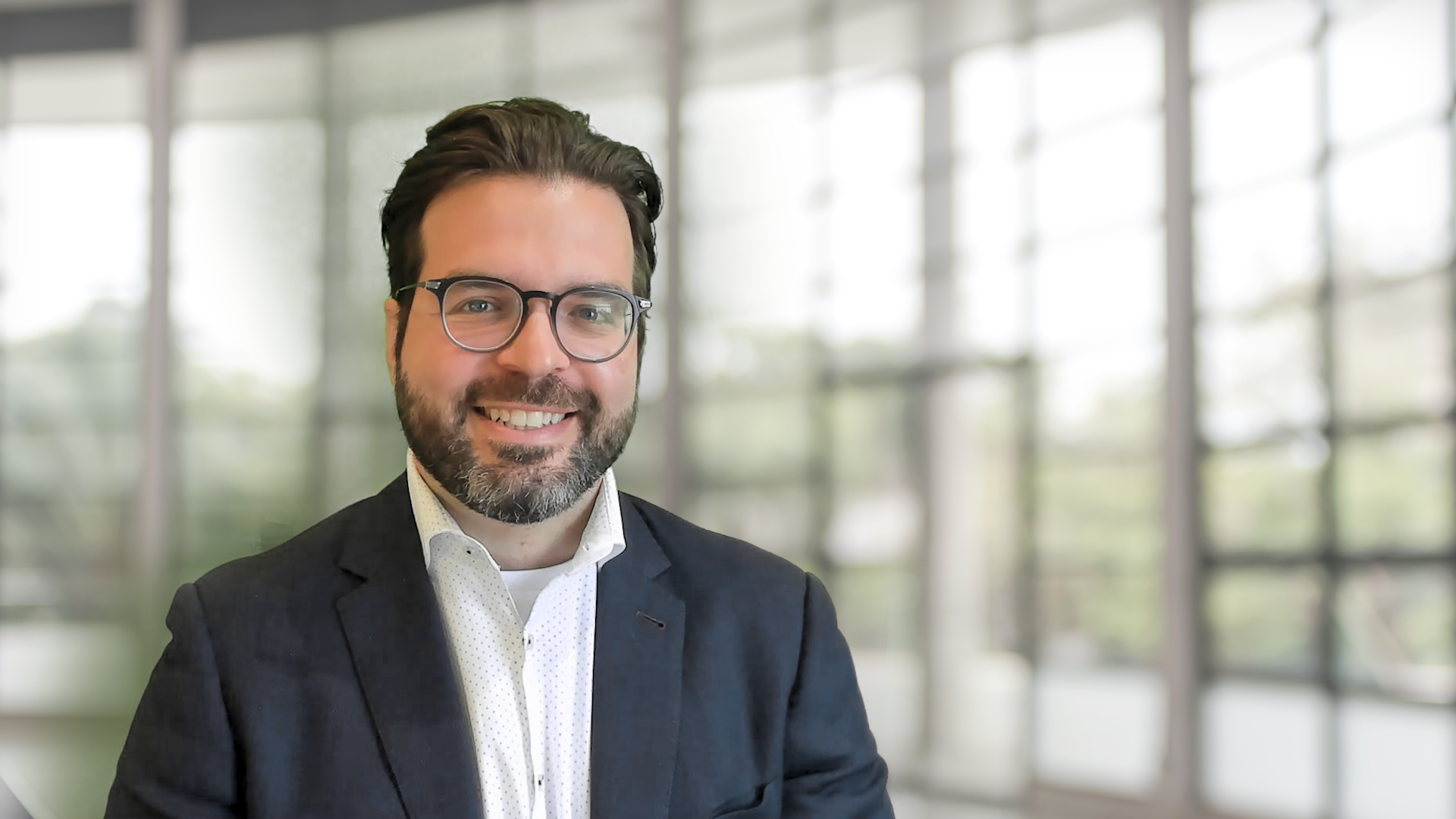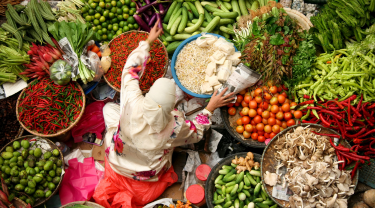
Specialty chemicals company creates high-value additives from waste plastic
GREENMANTRA Technologies, based in Brantford, ON, is an Export Development Canada 2021 Cleantech Export Star.
In this blog:
At GREENMANTRA, we transform challenging streams of waste plastic into specialty polymers that are used as additives to enhance asphalt roads and industrial plastic products like drainage pipes. Our vision is to be a global leader in specialty chemicals produced sustainably. GREENMANTRA’s products “multiply” the environmental benefit by enabling asphalt and plastics manufacturers to increase the amount of recycled material in their formulations.
Our mantra: “The right additive can do big things for your business and the planet.”
I came to GREENMANTRA fresh out of graduate studies in chemistry, where I focused on upgrading biomass material into higher-value products. I graduated with a passion for using chemistry to solve big problems, and I have always been particularly intrigued by how we can use chemistry to create value from waste.
There will never be a “silver bullet” to solve the plastic waste crisis. To achieve a truly circular economy, we need collaboration from companies across the world, and many different solutions. By recycling old plastic from many different partners to make new, high-value products, GREENMANTRA is contributing to this future circular economy, and we are already making a significant impact.
Refining the raw material
GREENMANTRA started our journey by exploring ways to make specialty polymers and waxes from discarded plastic. Specialty waxes are used as additives in a variety of product formulations, ranging from plastics production to asphalt roofing products to paving, but they’re normally made from petroleum products. By instead producing these specialty waxes from waste plastic, GREENMANTRA creates a sustainable alternative to petroleum-derived waxes and polymers. Plus, we are able to tap into a higher-value specialty product category with fewer competitors.
The company’s early years were spent learning about the world of waste plastics. We identified the degree of variability and contamination from different waste streams as a challenge. To be successful, we knew we would have to fine-tune our process to create a consistent end product from this variable input. Once we designed a process to do this, demand for our products developed quickly, and within a few years, we fully scaled our technology.
Today, our supply chain team leverages existing recycling infrastructure by working with municipalities, private recycling facilities, and industrial partners to source plastics that would otherwise end up in landfill. We run our manufacturing process in Ontario 24/7, year-round, to meet customer demand. We are recycling thousands of tonnes of waste plastic.
Export strategy
Initially, we focused on growth in North America. We knew that if we could demonstrate success in the United States with solutions for paving and roofing, it would allow us to quickly tap into other geographies, such as Europe and the Middle East, both of which use the U.S. as a reference point.
To network, we attended important conferences for the asphalt, roofing and plastics industries, and developed relationships with key thought leaders and research institutes in these industries. We did this for a year across Canada and the U.S. before expanding our focus to Europe.
In 2017, our work with an early customer in the roofing industry was featured on the Discovery Channel show, Made by Destruction. That gave us great visibility in the U.S. and boosted our credibility. We also had our products certified as 100% recycled content by a third party. Initially, we were constantly pursuing the market to find customers. But in 2020, the tides turned, and now customers are beginning to proactively reach out to us. It’s really exciting and rewarding to see this shift.
How EDC helped
Working with Export Development Canada (EDC) helped us understand the dynamics of other markets, especially around certifications such as REACH certification in Europe.
Our products are sold in truckload quantities. We began using EDC Credit Insurance very early on because, as a young company, every penny counted. We had to protect ourselves against the risk of non-payment, even on small orders.
EDC also gave us important working capital flexibility by providing guarantees to our bank for our term loan through the Export Guarantee Program. This allowed our chief financial officer to make decisions that enabled the company to grow much more quickly than we otherwise would have.
EDC’s surety bonds also helped us win big contracts with foreign buyers.
More plastics, more products
In 2015, we pushed even further into waste plastics and started working to develop new additives from waste polystyrene for use in industries such as inks, coatings, and adhesives. Polystyrene is used in food packaging, like trays for meat products from the grocery store, and currently, almost all of it ends up in landfill. Thanks to funding for research and development from Sustainable Development Technology Canada, we’ve now brought this technology to a demonstration stage.
We’re continuing to grow our business overseas. Over the last year, we entered into agreements with partners in both Europe and the Middle East to introduce our products to the paving and plastics industries. Even more exciting, we are exploring sites for two potential new manufacturing facilities—one in the U.S., and one in Europe.
With the market drivers favorable for quick adoption of our technology, plus the solid foundation we have built over the past decade with support from EDC, we are ready to expand our impact across the world by diverting plastics from landfill.

















